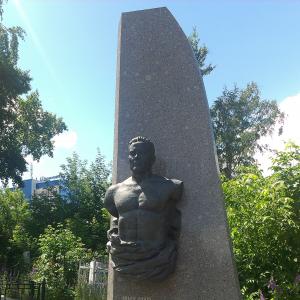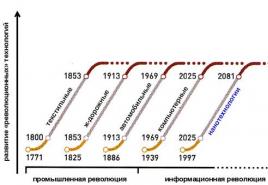Who speaks Portuguese. Official languages of Portugal
The westernmost country of the Old World, Portugal is loved by tourists for a certain special charm, excellent wines, amazing opportunities for quality surfing and a variety of beach holidays both on the mainland and on the islands. Portuguese is officially adopted as the official language in Portugal. The country is a member of the international organization - the Commonwealth of Portuguese-speaking countries. It also includes the former colonies of Portugal - Brazil, Angola, Guinea-Bissau, Cape Verde, Mozambique, Sao Tome and Principe.
The Miranda language has also had official status in the country since 1999, and Galician is very widely spoken in the north.
Some statistics and facts
- Portuguese speakers are called Lusophones, named after the Roman province of Lusitania. It corresponded to the territory of modern Portugal and by analogy with this, the totality of Portuguese-speaking territories on the planet is called Lusophonia.
- The official language of Portugal is one of the most widely spoken in the world and the second most spoken Romance language after Spanish. In total, about 200 million people speak it.
- About 80% of all speakers live in Brazil, former colony Portugal in South America.
- European Portuguese differs from Brazilian Portuguese at the level of phonetics and vocabulary. Their grammar is almost identical.
History and modernity
In ancient times, the Iberian Peninsula was inhabited by Iberians, Lusitanians and Ligurians, and their languages left their mark on the modern toponymy of Portuguese. The Romans brought with them Latin, from which all the Romance languages originated, and the Visigoths and Moors who replaced them brought their influence to the formation vocabulary.
The first dated document in Portuguese was the will of King Afonso II, and the heyday of Portuguese literature came at the end of the 12th century, when Provençal troubadours appeared, composing lyrical songs and poems.
IN fiction The official language of Portugal is often described as "sweet, wild and beautiful".
Note to tourists
Despite the fact that Portugal is located on the "outskirts of Europe", English, French and other foreign languages its population owns it quite widely. In tourist places, hotels and restaurants in the capital and other large cities, English-speaking and Spanish-speaking staff work, and menus, maps, public transport schemes are translated into English.
In travel companies in the cities of Portugal you can always book excursions with an English-speaking guide.
Portuguese serves as the official language Portugal (less than 5% of Lusophones live in this country), Brazil (80%), Angola, Mozambique, Cape Verde (Cape Verde Islands), Guinea-Bissau, Sao Tome and Principe, East Timor (along with the Austronesian language tetum) and Macau/Macao (along with Chinese). In addition, hundreds of thousands of residents of France, Paraguay, South Africa, the USA and India (Goa region) speak Portuguese.
Portuguese writing built on the basis of the Latin alphabet, with a number of diacritics. The principle of “as you hear is how you spell” is observed less consistently in Portuguese than in Spanish, which is why Portuguese is somewhat more difficult to learn.
There are two main options Portuguese language : European and Brazilian, as well as a number of creolized varieties in African and Asian countries, differing from each other phonetically, lexically, orthographically and, to a lesser extent, grammatically. In particular, in Brazil the letter combination ou is pronounced as o, the final -r and -l are often dropped; the combination lh is pronounced [l] in Portugal and [th] in Brazil. The ending -s in the plural of nouns and verbs is often omitted by Brazilians: they say as casa instead of as casas, nos havemo instead of nos havemos, and even nos came a fruta instead of nos comemos a fruta.
In 2008, a spelling reform was undertaken in Portugal with the aim of unifying the written language based on the Brazilian one. Television, especially Brazilian series popular in well-known circles, also brings the European version of Portuguese closer to the South American language.
In the former Portuguese colonies - Angola and Mozambique - there is a European version of the Portuguese language with an abundance of borrowings from African languages.
In Portugal there is a distinction dialects northern (provinces of Veira Entre Duro, Miranda) and southern (Extremadura, Alentejo and Algarve). In Brazil there are dialects of the north and south.
Features of the phonetic system(unlike the closely related Spanish language): the vowel phonemes [e], [o] and [a] differ in openness and closedness. There are nasal diphthongs that distinguish Portuguese from other Romance languages. The stress is strong with a sharp difference between stressed and unstressed syllables and reduction of vowels in unstressed positions, primarily at the end of the word (o is reduced in u, a in ə, e in i and a neutral sound until it disappears completely; because of this reduction, lusophones understand spoken Spanish better than Spanish-speaking people understand Portuguese). Consonants are pronounced differently depending on position and environment. S and z in absolute form and before plosive consonants sound like [ш] and [ж], respectively, which gives Portuguese speech a specific phonetic coloring, especially considering the particularity of the morpheme s - indicator plural name and second person of the verb. R in the absolute outcome is weakened. L is pronounced firmly.
Compared to Spanish, Portuguese is more archaic.This is evidenced by: the initial f- (for example, in the word falar “to speak”), which in Spanish corresponds to h- (hablar); Latin diphthong au (preserved as ou) /for example, in the word ouro "gold"/, corresponding to Spanish o (oro). The diphthong ei, which originated in Latin words, ends in -arius, eria, for example materia -> madeira "wood" (in Spanish - madera). Latin short vowels were not diphthongized: compare Portuguese pé "foot" (Spanish pié) and Portuguese morto "dead" (Spanish muerto).
Portuguese retains the combination it, which comes from Latin ct, for example oito "eight" from Latin octo (Spanish ocho). The meaning and form of the Latin plusquaperfect remain in Portuguese, for example fabulaveram -> falara “I said (before)”.
One of the most significant innovations of the Portuguese language is the loss of the intervocalic -l-, which is preserved in most Romance languages. Thus, the Latin dolorem gives dôr in Portuguese, while in Spanish it remains dolor. The intervocalic -n- behaves in a similar way, which usually disappears, nasalizing the preceding vowel: manum turns into mão, lunam into lua.
Initial pl-, fl-, cl- in Portuguese become ch- [ш], which corresponds to Spanish ll. For example, the Latin words plorare, flammam and clavem become chorar, chama and chave in Portuguese.
Features of grammar. The naming system in Portuguese is similar to Spanish, the differences relate mainly to morphonology. Names starting with the nasal diphthong ão have three plural variants: - ãos, - ões, - ães. Nouns ending in -l lose it in the plural: sinal - sinais. Pronouns form fused forms (lhe + o = lho); definite article masculine o, feminine a merges with the prepositions a, de, por (a + o = ao, de + o = do, por + o = pelo, a + a = à).
Portuguese has a phenomenon unknown to other European languages - the conjugated infinitive, for example: êle diz sermos pobres "he said that we are poor." It is widely used in the dependent position, along with the subjunctive mood: e preciso sabers ‘you need to know’. The construction of the infinitive, conjugated and unconjugated, with the preposition a is synonymous with the gerund. The form with the suffix -ra denotes the antecedent indicative (similar to variants of Spanish in Latin America). Complex tenses are formed with the auxiliary verb ter. In the pre-past and future there are variant forms with haver. Complex The main way of denoting the past complete is the simple preterite; the perfect form is rarely used. The position of the verb pronoun is relatively free; preposition or postposition is determined by speech factors.
First literary monument Portuguese dates back to 1189. This is a lyrical poem written by Payo Soares de Taveiros and addressed to Maria Paes Ribeiro, lover of Sancho I, the second king of Portugal. The first prose monuments (chronicles) date back to the 15th century. Portuguese words can be found in Latin texts from the 9th century.
The Portuguese language is a product of a symbiosis of the medieval Galician-Portuguese language and provincial Latin. Modern Galician (in Portuguese galego or português da Galiza, in Spanish gallego), spoken by 3-4 million inhabitants of the northwestern tip of the Iberian Peninsula, is the most archaic dialect of Portuguese, and Galicia itself is considered the cradle of Portuguese language and literature .
IN history of literary Portuguese distinguish: the Portuguese-Galician period (XII - mid-XIV centuries), the heyday of troubadour poetry; the Old Portuguese period (mid-XIV - mid-XVI centuries), which is divided into the Early Old Portuguese period (mid-XIV - mid-XV centuries), from the first documentary monuments to the flowering of historical prose, the pinnacle of which was the work of the “father of Portuguese prose” Fernão Lopes, and the late Old Portuguese period (mid-15th - mid-16th centuries), characterized by the appearance of the first grammars, literary works different genres; modern period (from the middle of the 16th century, when the classic of Portuguese literature Luis de Camões wrote).
Modern Portuguese differs little from Old Portuguese; the main change is the loss of the initial l- in the article (lo, la, los, las turned into o, a, os, as) and the intervocalic -d- in the verb endings of the second person plural (-ais, -eis, -is instead -ades, -edes, ides).
Portuguese retains traces of the ancient Celtic language, as well as words from the languages of pre-Roman colonists - Greek, Phoenician, Carthaginian. There are signs of Germanic influence in the Portuguese language (V-VIII centuries), but most of all borrowings are from Arabic (VIII-XIII centuries) and Italian. Spanish, which was used for a long time in Portugal as a literary language, had a great influence on the Portuguese language. The Portuguese language did not escape French influence.
The discovery and development of vast overseas territories by the Portuguese left an imprint on the language. Numerous exotic words, primarily of Asian origin, penetrated into Portuguese, and through it into other European languages. Even some words of Latin origin entered into common European use from Portuguese (in the modified meaning that they acquired in Portuguese) - for example, “cobra”. Since the 19th century, there has been a struggle against borrowing, but rather sluggishly.
Portuguese is one of the most widely spoken languages in the world. It belongs to the Romance group of languages. Written Portuguese is based on the Latin alphabet. People who speak Portuguese are called Lusophones. After all, the Portuguese territories were previously called Lusitania. This term has quite old story, like the Portuguese language itself.
History of the Portuguese language
In ancient times, the Iberian Peninsula was inhabited by peoples whose history is practically unknown. Researchers believe that these tribes had African roots.
The north of Portugal was once inhabited by Lusitanians, Ligurians and Iberians. The Ligurian language was the basis from which Portuguese was then born.
In the 13th century BC, the northern tribes were conquered and absorbed by the Celts. Therefore modern language There are also Celtic roots in Portugal.
Around 218 BC, the Romans captured the peninsula. They brought with them Latin, which was actively spread in the south. The northerners lived in greater isolation and managed to preserve their habits and customs.
During our era, 711 also became a difficult period for Portugal. The Iberian Peninsula was captured by the Arabs. The population was forced to learn Arabic. This is how the notorious Arabisms found their way into the language of the indigenous peoples of this state.
In the 9th century, the Romanesque dialect was almost completely formed in these lands. This process gave birth to the Old Portuguese language. Thus, in 1536, the first Portuguese charter, written by Fernan de Oliveiro, was born.
4 years after the release of the grammar, another one appeared significant book- “Dialogues about language.” Its author was João de Barrosha. After this, the Romanesque dialect was transformed into the official language of the state.
Modernity of the Portuguese language
Today, Portuguese is rapidly approaching its Brazilian norm. Because there are differences between the same language in Portugal and Brazil.
Luis de Camoes did a lot to ensure that the grammar and spelling of Portuguese had uniform rules and norms. In his works he used ancient literature and Italian works of the Renaissance.
Features of the language
The contrast between open and closed phonemes is a feature of New Portuguese. Cervantes also called this language group “sweet language”, for its melody and melodiousness.
About 150 million people today speak Portuguese. Many of them use specific dialects. The absence of an intervocalic "l" sound distinguishes this language from all other Romance languages.
The first written monument of Portuguese dates back to 1189. It is a poem dedicated to Maria Paes Ribeiro, who was the lover of Sancho the First. The author of this work is Payo Soares de Taveiros.
Portuguese has many borrowings from Spanish, Arabic and Latin. There are words and expressions from Asian language group. This diversity is explained simply: the Portuguese have always traveled a lot, maintained trade relations with other peoples, and their territories were repeatedly conquered.
Portugal is a country that has absorbed best sides different cultures. A variety of tribes and peoples lived under its scorching sun in every era. All of them had a hand in the formation of the modern Portuguese language. This is probably why Portuguese is not only one of the most common, but also one of the most beautiful languages peace. It is also a popular and frequently chosen language to learn.
Portuguese belongs to the Romance group, part of the Indo-European language. language family. The written language is based on the use of characters from the Latin alphabet.
Portuguese emerged from the Galician-Portuguese language and today is the second Romance language in terms of the number of people speaking it, after its neighboring Spanish, in addition, Portuguese is consistently among the ten most common languages in the world, occupying 6-8 places according to various sources. Nowadays, in total, more than 230,000,000 people in the world speak Portuguese; by the way, there is a special term for them - Lusophones, and all territories in which Portuguese is the main language are united by the term Lusophony.
Portuguese has many similarities with other languages of its group. The closest thing to it is Spanish However, in comparison with Spanish, the Portuguese language is more conservative, it uses many ancient phrases, in addition, Portuguese has more phonetic borrowings of Celtic origin, and the pronunciation of some sounds makes it similar to Catalan and French languages. However, in terms of lexical composition it is still much closer to Spanish.
The year of origin of the Romance group of languages is considered to be 218 BC, when the Romans, who came to the Iberian Peninsula, brought there Latin, from which the entire group subsequently developed.
The development of the Portuguese language was somewhat influenced by the Germanic tribes that at different times captured the peninsula during the “Great Migration”. The Arab conquerors had more influence on Spanish speech than on Portuguese; this can easily be explained by the fact that the people who lived in Portugal two centuries earlier than the Spaniards conquered their lands, after which the Galician-Portuguese language became the main language throughout almost the entire territory of the country, however The culture of the Mauritanians managed to penetrate deeply into the everyday customs of the inhabitants of Portugal.
In the 14th–16th centuries, Portuguese travelers began to spread the language throughout the world. Thanks to the colonization of Asian and African settlements and the emergence of mixed marriages between the aborigines and the Portuguese, as well as the activities of Catholic missionaries, the Portuguese language is successfully taking root in Africa, America and Asia.
During the Renaissance, numerous borrowings from Gaulish and Gaulish came into the Portuguese language. English languages and the divergence of language norms between Portugal and Brazil began.
Portuguese is the official language of Portugal, Brazil, Guinea-Bissau, Angola, East Timor and Mozambique, and the vast majority of speakers today live in Brazil.
There are subtypes of the Portuguese language - classical Portuguese and Brazilian Portuguese. The difference between them is due largely to phonetic and lexical features; in addition, in Brazil there are northern and southern dialects, and in Portugal itself there are three dialectical varieties of the language.
Related languages

The peculiarities of pronunciation make it difficult for native Spanish speakers to understand Portuguese, although written Portuguese is most often understood by Spaniards, Spanish speech is easily understood by Lusophones, especially in places where Spanish had the greatest influence on the development of Portuguese, such as southern Brazil.
Story

The first written evidence of the origin of the Portuguese language is found in the 9th century. In records from this period, texts written in Latin begin to use some Portuguese words, a mixture linguists call pro-Portuguese.
In the 12th-14th centuries, at the beginning of the development of the Portuguese language, the Galician dialect from which it arose was the language used by poets in Christian Spain in their work. Following the recognition of Portugal as an independent state in 1143, the Galician dialect began to be used as the basis of the classical literary language at both the Galician-Portuguese and Spanish courts.
In 1920, the Galician-Portuguese ruler, King Dinis, founded a university in Lisbon and ordered that the then considered vulgar language be called Portuguese and used in all official writing.







